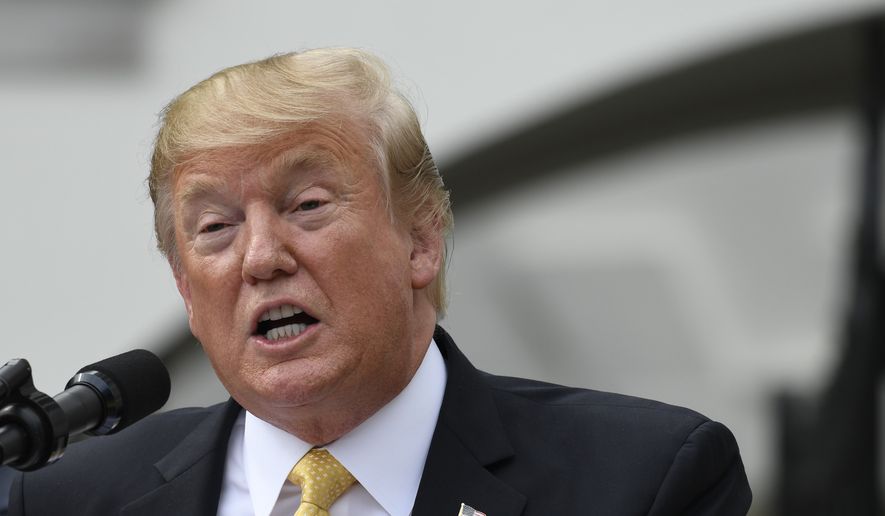A federal judge Tuesday rejected President Trump’s chief argument for why he’s able to continue to run his hotel empire while serving as chief executive.
Judge Emmet G. Sullivan, a Clinton appointee to the bench in Washington, D.C., ruled that “emoluments” under the Constitution means compensation in general. That puts the president at risk of violating the Constitution’s Emoluments Clause, which forbids him from earning remuneration from a foreign government.
Judge Sullivan did not yet rule on whether the president is actually in violation, but he did reject the White House’s attempt to have the case dismissed.
That is a severe blow to Mr. Trump, who’d tried to argue that he only ran afoul of the Constitution if he were involved in turning a profit from official services rendered, not his private business empire.
“This is a tremendous victory,” Sen. Richard Blumenthal, Connecticut Democrat, said on Twitter.
Mr. Blumenthal was the chief plaintiff in the case against Mr. Trump. It’s one of several Emoluments Clause lawsuits pending in various courts.
In this case, Mr. Blumenthal says the president’s hotel in Washington, the Trump International, has been raking in money from foreign governments renting rooms or otherwise doing business, perhaps eager to curry favor with Mr. Trump.
That’s exactly what the Constitution’s emoluments prohibition is meant to dissuade, the president’s opponents argue.
Mr. Trump refused to relinquish his business empire when he took office, instead saying only that he would turn over day-to-day operations to his sons.
As reports of entanglements pile up Mr. Trump has held steadfast, deploying lawyers to argue that the type of income he’s collecting from his properties isn’t what the founders had in mind.
The Constitution reads: “No person holding any office of profit or trust under them, shall, without the consent of the Congress, accept of any present, emolument, office, or title, of any kind whatever, from any king, prince or foreign State.”
Judge Sullivan said to determine what “emolument” means for the purposes of law, he had to delve into what it meant to the founders. He cited two Supreme Court precedents beloved by conservatives — one on Second Amendment gun rights and the other spanking President Barack Obama for illegal recess appointments — for authority on the need to go back to original intent.
Mr. Trump had pointed to founding-era presidents who had plantation interests and exported their produce as a defense — George Washington in particular.
But Judge Sullivan pointed out that there’s no hard evidence those presidents were engaging directly with foreign governments.
“The court is persuaded that the adoption of the clause and its historical interpretation support plaintiffs’ definition rather than that of the president,” the judge ruled.
• Stephen Dinan can be reached at sdinan@washingtontimes.com.




Please read our comment policy before commenting.